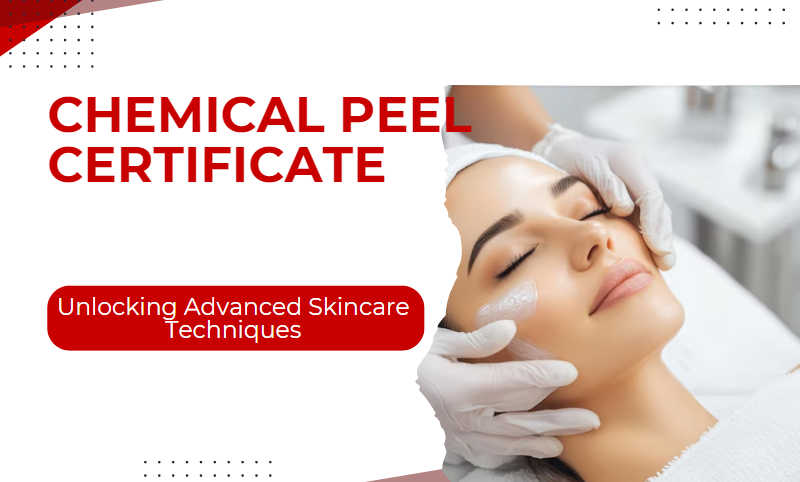In the world of aesthetics, chemical peels have become a popular solution for improving skin texture, reducing signs of aging, and treating conditions like acne and hyperpigmentation. For beauty professionals, earning a certification in chemical peels is a way to broaden their skill set and offer clients more advanced skincare treatments. A chemical peel certificate not only validates your expertise but also opens doors to new opportunities in the competitive skincare industry.
The Science Behind Chemical Peels: Why You Should Get Certified
Chemical peels work by applying a specially formulated solution to the skin, causing the top layers to exfoliate and eventually peel off, revealing smoother, more youthful skin underneath. This process requires a deep understanding of skin types, chemical formulations, and post-treatment care, making certification essential for any professional who wants to perform this treatment safely and effectively. Earning a chemical peel certificate ensures that you have the knowledge and skills to assess clients’ skin conditions, select the appropriate peel strength, and avoid complications.
There is a growing demand for chemical peels, as they offer significant results with minimal downtime. With the right training, certified professionals can perform a wide range of peels, from superficial to medium-depth and deep peels, depending on the client’s needs. Understanding the science behind the treatment—such as how different acids like glycolic, salicylic, or TCA affect the skin—gives professionals an edge. By completing a chemical peel course, you can offer this highly requested service while maintaining the highest safety standards.
How a Chemical Peel Certificate Can Expand Your Aesthetic Practice
Obtaining a chemical peel certificate not only enhances your technical abilities but also helps you expand your aesthetic practice by attracting a broader range of clients. With the increasing focus on skincare, many clients seek advanced treatments to achieve clear, glowing skin. Offering chemical peels as part of your service portfolio can significantly increase your client base and revenue potential.
In a certified chemical peel course, professionals learn how to customize treatments based on each client’s unique skin type and concerns, which is a critical aspect of delivering effective results. These courses provide hands-on training, ensuring that students practice on real clients under the guidance of experienced instructors. The skills acquired during chemical peel classes will allow you to confidently perform these treatments and expand your service offerings, helping your aesthetic practice stand out in a crowded marketplace.











